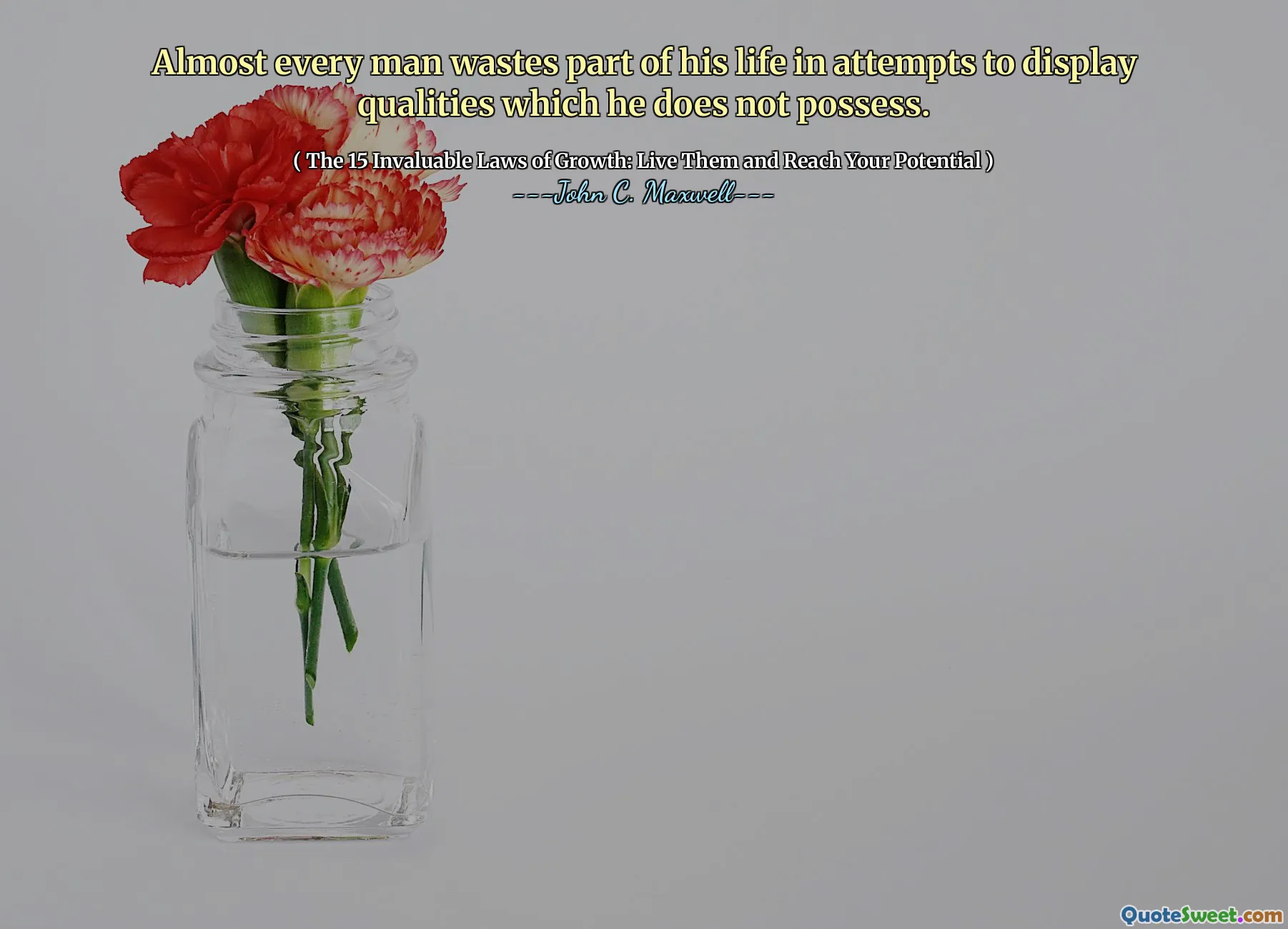
Almost every man wastes part of his life in attempts to display qualities which he does not possess.
This quote highlights a universal aspect of human nature—the tendency to present oneself in a way that may not accurately reflect one's true character or abilities. Many individuals, often driven by societal pressures, the desire for approval, or personal insecurities, venture into efforts aimed at impressing others by showcasing qualities they either do not possess or haven't fully developed. Such pursuits can be driven by superficial motives, such as seeking validation, admiration, or status, rather than genuine self-improvement or authenticity. Engaging in this mirror-based self-display often leads to a disconnect between one's perceived identity and actual self, which can generate internal conflict and dissatisfaction.
Moreover, this tendency can divert valuable time and energy away from authentic growth and self-awareness. Instead of investing in developing true virtues like integrity, kindness, or competence, individuals might spend precious moments crafting facades that crumble under pressure or scrutiny. Over time, this behavior risks undermining genuine self-confidence, fostering a cycle of inauthenticity that curbs true personal development.
Reflecting on Maxwell's insight encourages us to focus on self-acceptance and honest self-assessment. Embracing who we are, with all our strengths and flaws, is a better investment of our resources than futile efforts to impress others with false qualities. Authenticity fosters deeper relationships, personal satisfaction, and meaningful growth, whereas superficial displays often lead to internal emptiness and social disconnection. Ultimately, the quote inspires a call to pursue genuine qualities and to be content with oneself, fostering a life aligned with true character rather than external appearances.






